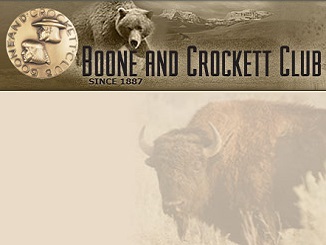 The Boone and Crockett Club, the oldest hunter-conservationist organization in North America, has released a comprehensive essay on fair chase, the first and longest standing honor code in North American hunting.
The Boone and Crockett Club, the oldest hunter-conservationist organization in North America, has released a comprehensive essay on fair chase, the first and longest standing honor code in North American hunting.
“Millions of hunters worldwide practice fair chase, many without even knowing this code has a name or that the Club originated it,” said Club President Morrie Stevens. “With public misperceptions about hunting on the rise and increasing questions about hunting practices and new technology, we feel it is time to re-visit this fundamental part of hunter’s conservation ethic.”
The concept of fair chase-the ethical pursuit of a game animal in the field-emerged over 125 years ago at a time of environmental crisis when many formerly abundant wildlife populations in North America were on the brink of extinction. Theodore Roosevelt, after witnessing the bleached bones of thousands of slaughtered bison, was determined to do something about this travesty.
The new code of conduct for hunters established by Roosevelt and the Boone and Crockett Club not only transformed individual behavior and purposes for hunting, but also supported the new conservation principles the Club was promoting. The system of wildlife conservation we have today is still based on the Club’s principles of limiting harvest and wisely managing wildlife populations to ensure they will never be threatened again, as well as an ethical approach to hunting that meets with the expectations of sportsmen and society.
The Club’s essay on fair chase explores the code’s historical roots and provides a framework for how modern fair chase hunters think about hunting practices and customs. It delves into how hunters evaluate new technological advancements, regional traditions and why fair chase is more a matter of the “spirit of the hunt” than a set of written rules. The essay also addresses the opportunity for hunters to foster a positive public perception of hunting by conducting themselves in an ethical manner.
“Fair chase is rich with benefits,” said Stevens. “Not only to the game we hunt and the traditions of hunting, but to hunters personally. Fair chase is linked to such things as self-reliance, discipline and character development, and caring for something greater than ourselves. Understanding the value and transformative nature of a fair chase ethic is just as important for those who hunt as it is for non-hunters.”
The new essay can be read at this link: http://www.boone-crockett.org/pdf/On_Fair_Chase.pdf
